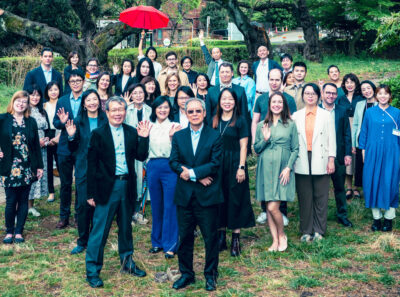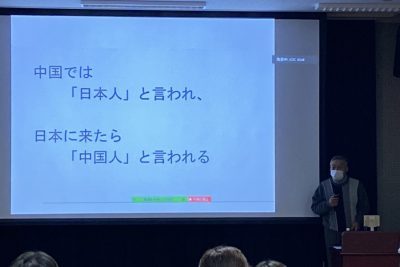Even in corona spread and a flurry of cherry blossoms, an ideation is unstopped — the sketch of academic activities of Institutes for Advanced Studies (Tokyo College), the University of Tokyo—
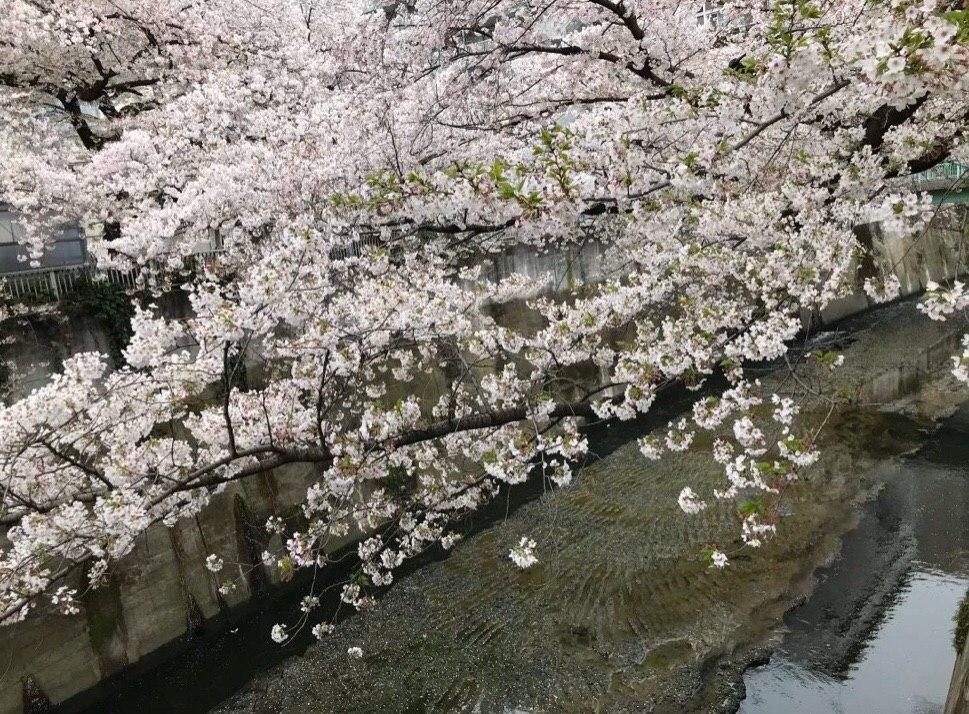
Prof. Ge Zhaoguang, currently staying at Tokyo College, wrote the text to introduce Tokyo College to the Chinese intellectual, which candidly expressed how he perceived Tokyo College. It will be soon released to public by the website (www.ihss.pku.edu.cn) and WeChat of the Institute of Humanities and Social Science, Peking University. With his approval, we introduce it with the blog of Tokyo College. Hang Houquan, a visiting scholar, translated it into Japanese. We are deeply thankful to both of them.
HANEDA Masashi
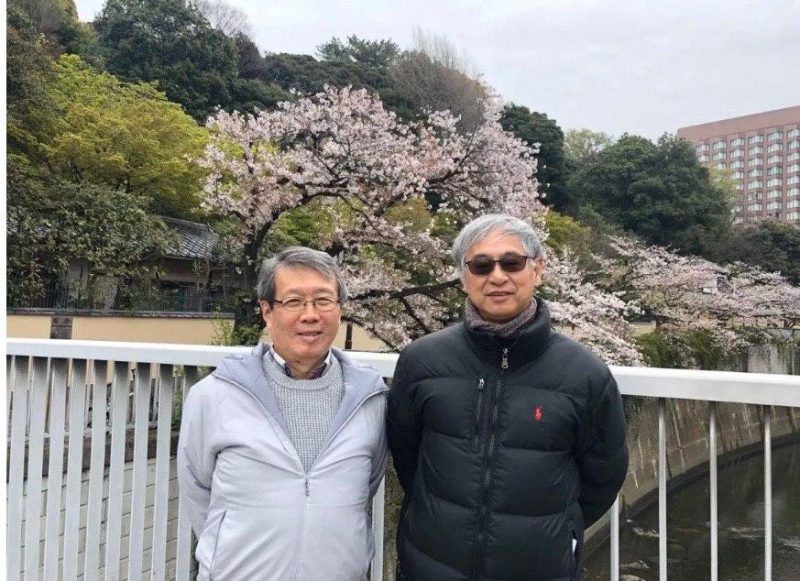
1
Scheduled for 8 months, I was invited to Tokyo College, Institutes for Advanced Studies, the University of Tokyo as a specially appointed professor at the end of last year. Having been under such pressure from the work that I had no time for reading, I wanted to take the opportunity to read Japanese books collectively. Moreover, I also wanted to see how the research organization newly established in the University of Tokyo would correlate technology with humanities and social sciences. It was because many scholars of the top class of the natural science and humanities gathered there. From January to the beginning of February of this year, all was very favorable. I continuously listened to the lectures of Kajita Takaaki, a Nobel prize winner, Kanehara Nobukatsu, a diplomatic agent, Viktoria Eschbach-Szabo, a German linguist specializing in Japanese. In addition to some lunch meetings, the seminar about identity was also conducted.
However, the unexpected occurred. In the middle of February, novel coronavirus has spread from China to the world, and Tokyo could not be safe, too. From the end of February, all the activities have stopped, and we are obliged to use ZOOM even for the planned 2nd seminar about identity.
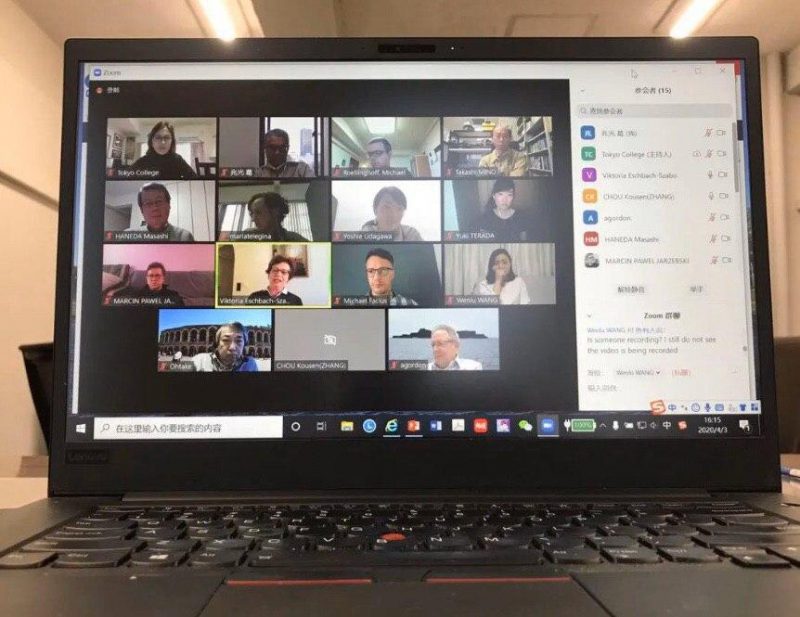
2
Tokyo College is a new organization and an institute for advanced studies founded last year (2019). Prof. Haneda Masashi, Vice President of the University of Tokyo and Director of Tokyo College, said that Tokyo college was founded in order to promote the further internationalization of the scientific exchange in the University of Tokyo, and the dialog between humanities, social sciences, and natural science. He is a specialist in Islamic world history, advocating "the new world history" and known as a person with the famous vision that we should raise "residents of the earth." In order to raise future "residents of the earth," scholars should spread all the significant excellent studies in the world, and the culture of sharing resources and valuing the earth. For this purpose, the institute has invited top-class scholars from various areas of research for a lecture, and professors of various fields have been invited from many countries and have performed transdisciplinary exchange beyond the area.
The website (https://www.tc.u-tokyo.ac.jp/) of Tokyo College, the University of Tokyo shows that Director Haneda Masashi, above-mentioned, is a specialist in Islamic and the world history. Sano Masaki and Otake Akira, Vice Directors of Tokyo College, are a physicist and a specialist in technology policy, respectively. Sir Anthony J. Leggett invited as Honorary Director of Tokyo College is a leader of very low temperature physics, and an awardee of the Nobel Prize for physics in 2003. The College members include three excellent professors of the University of Tokyo: Kajita Takaaki, the above-mentioned Nobel Prize awardee, Tokura Yoshinori, a physicist, and Fujita Makoto, a chemist. Each is an awardee of the Japan Academy award and Medal with Purple Ribbon, and a highly anticipated scholar in the scientific community of Japan. Furthermore, they include Mino Takashi, a specialist in environmentology, and Hoshi Takeo, a specialist in economics. Invited members from overseas mainly include many scholars of humanities now, however, of course, also include natural scientists. Andrew Gordon, Professor of History at Harvard University and a specialist in modern Japanese economic history, Viktoria Eschbach-Szabo, Professor of Tübingen University and a specialist in language culture, and I are currently staying, additionally, Yuan-Tseh Lee, a chemist and a Nobel Prize awardee, Svante Lindqvist, a specialist in technography and the first Director of the Nobel Museum and former President of the Royal Swedish Academy of Sciences, and Park Cheol Hee, a scholar of international relations and a specialist in Japanese studies at Seoul National University, have ever been invited.
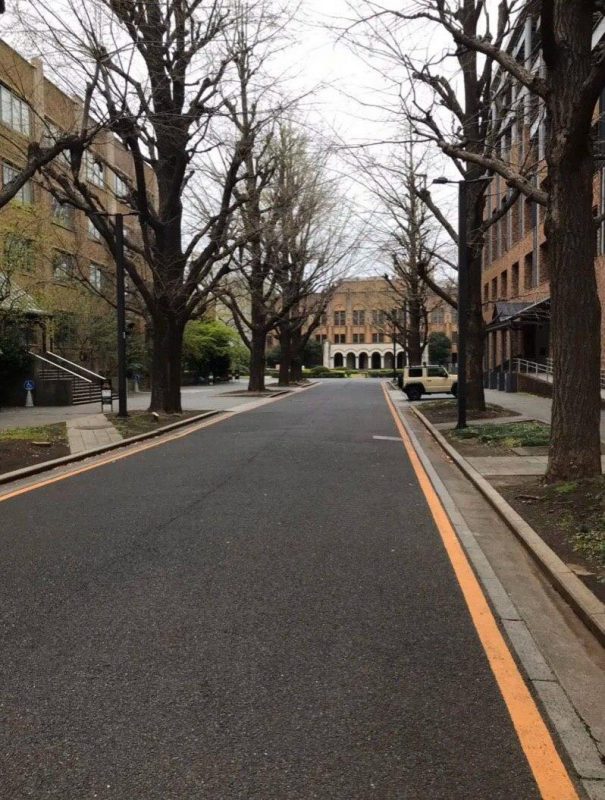
3
The aims promoted since the establishment of the institute seem to be the field fusion and interdiscipline beyond the border between humanities and sciences, the dialogue with students or the general public about social problems, and always being conscious of the world while being based in Japan.
In addition to public lectures, I also have some discussions with colleagues here. Although topics range very widely, I introduce two interesting examples. A young scholar mentioned the problem of ethnic "identity" the issue of the "Ainu" in Karafuto (Kuye Dao). The scholar said that the Meiji government domestically regarded the "Ainu" as "barbarians," despite emphasizing the "Ainu" being "Japanese people" towards Russia. Such operation about "Self" and "the other (s)" made me naturally recognize Kuye Dao's history of having been called "Kuye Dao" (the Qing dynasty), Sakhalin (Russia), and Karafuto (Japan). It is likely that continuously shifting of ascription for the state of a certain area makes the problem of the identity of the ethnic minority living in the area very complicated.
The present new trend of history and anthropology does not only research their ethnic origin, but also pays more attention to the construction of their own identity, suggesting that it is necessary to clarify how many "Ainu" are in Karafuto and Hokkaido now and how they conceive their own ethnic identity. Likewise, The questions we should ask are how the Japanese government is treating a small number of non-Japanese race and whether it treats them favorably and encourages them to maintain their identity and culture or aims at remaking them by encouraging them to have the identity of citizens of the state.
In other lunch meeting, another young scholar introduced the modern history of the museum of Iran, which also made us recognize many problems. Of course, museums are products of modern civilization, but it seems important that they actually have two functions, especially in the process of modern state formation: "making national history and identity" and "preservation of cultural assets and succession of tradition." Chinese History Museum and National Palace Museum are representative of these roles. However, Chinese large-sized national museums seem to exhibit few contemporary arts and mainly exhibit traditional works of art or cultural heritages. That differs from the Iranian art museum of Pahlavi dynasty (1977) which gradually accepted even the modern art and contemporary art. What does such difference symbolize in respect of ideology?
Finally, of course, it is a seminar about "Identity" that was the most interesting. In the first meeting held on February 4, Prof. Haneda Masashi and I presented a topic for 20 minutes respectively. He started from a story of his visit to Mexico.
A Mexican scholar gave unexpected answer in response to his question what the identity of Mexico was: "Being diverse."
Subsequently, he introduced the concept of "identity" of various languages. I reported the process that the concept of identity came to attract attention in China after the 1990s, the Chinese translation of "identity" and the complexity of Chinese identity problem, its correlation with history, and alarming problems at discussion of Chinese identity. It is natural that Prof. Haneda is interested in theory and language because of being a specialist in the world history, and good at French, English, and Persian. Meanwhile, I am more interested in historical formation of the ethnic and national identity because of being a Chinese historian. Therefore, in the first meeting, mutual different focuses made no crossover point in the problem despite an active discussion, like fighting on a junction of three roads in the darkness. However, it is needless to say that everyone became interested and was looking forward to the 2nd "identity" seminar.
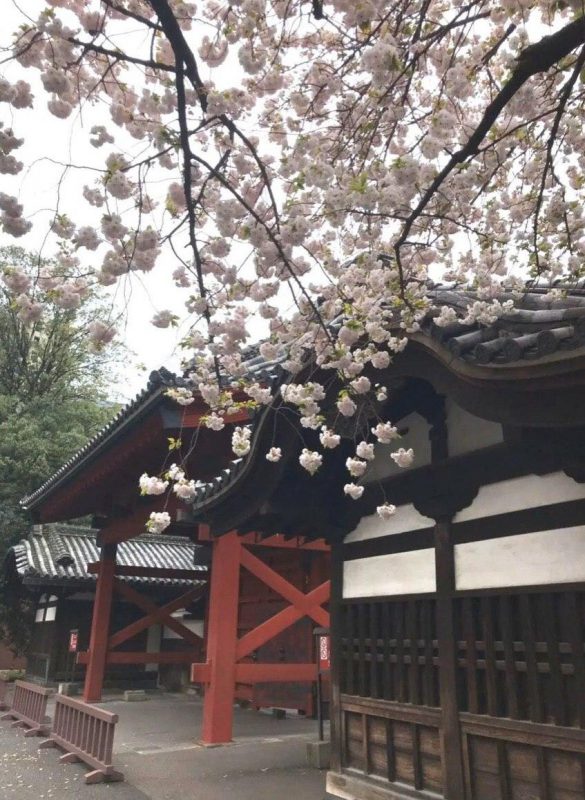
4
In March, when novel coronavirus began to spread further, it was just the season of cherry blossoms. Cherry trees in the campus of the University of Tokyo were fully in bloom like clouds, and Shinobazuike and Ueno Park, visible in the distance, are famous as a cherry-blossom-viewing spot in Japan. However, because of fear of corona spread, the Japanese government and Tokyo requested self-restraint, which resulted in seeing no cherry blossom viewer even at a beauty spot where it was crowded every year.
On a drizzly morning, I went to Ueno Park. The green barricade for prevention of the placement of cherry blossom viewer was placed in the park where rows of cherry trees were fully in bloom, and nobody was under cherry trees. The quiet sight made me slightly disconsolate and sentimental. Heavy snow suddenly came down in large flake in Tokyo one day at the end of March. TV news said that it was the heavy snow for the first time in 30 years. The snow overlapped with the light pink petal of the cherry tree, and petals were falling together with snow. The sadness was spurred by the fact that no one was seeing such beautiful sight. The dignified beauty, like penetrating to the core, made me feel the transparent cleanliness, and a heavy heart simultaneously
After the end of February, many lecture meetings were forced to be postponed to prevent the spread of novel coronavirus. The lecture “Digital Revolution: Data-led Prosperity in the 21st Century” by Mr. Chandrasekaran, from India, was scheduled for February 27, the lecture “Japanese Literature in the World” by Prof. David Damrosch, from Harvard University, was scheduled for March 10, and the lecture “Art as a Source for the History of Mongol Eurasia” by Prof. Sheila Blair, from University of Virginia, was scheduled for March 16, but those were postponed successively. Of course, my first lecture "Last Great Fest within the Tributary Circle" scheduled for March 19 was postponed, too.
Even in such an emergency, Tokyo College does not stop its activities, planning the seminar with ZOOM. Tomorrow, it is planned to give the seminar about "identity," in which Prof. Andrew Gordon, from Harvard University, and Prof. Viktoria Eschbach, from Tubingen University in Germany, will report.
Even in corona spread and a flurry of cherry blossoms, an ideation is unstopped. The research group of Institutes for Advanced Studies, the University of Tokyo, also continues the activities through ZOOM.
April 2, 2020 At Tokyo
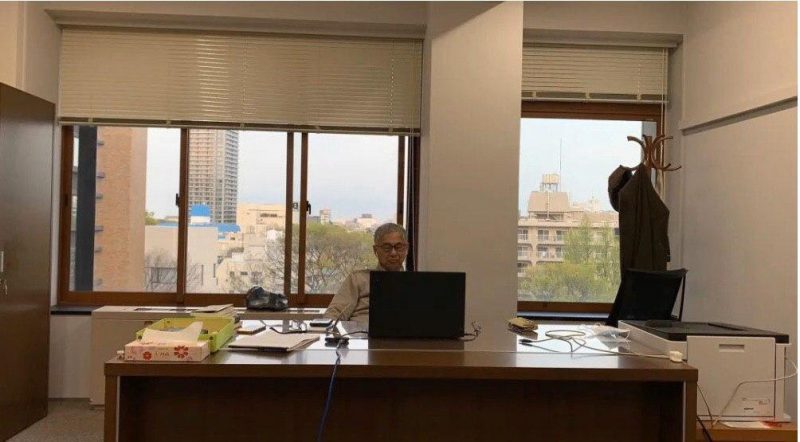
Postscript:
After finishing writing the text, I got to know that Tokyo college welcomed 5 new members, who are assistant professors, postdoctoral fellows, researchers from every part of the world. The 2nd "Identity" seminar by ZOOM is scheduled for April 3, and the 3rd "Identity" seminar is also scheduled for April 24.


